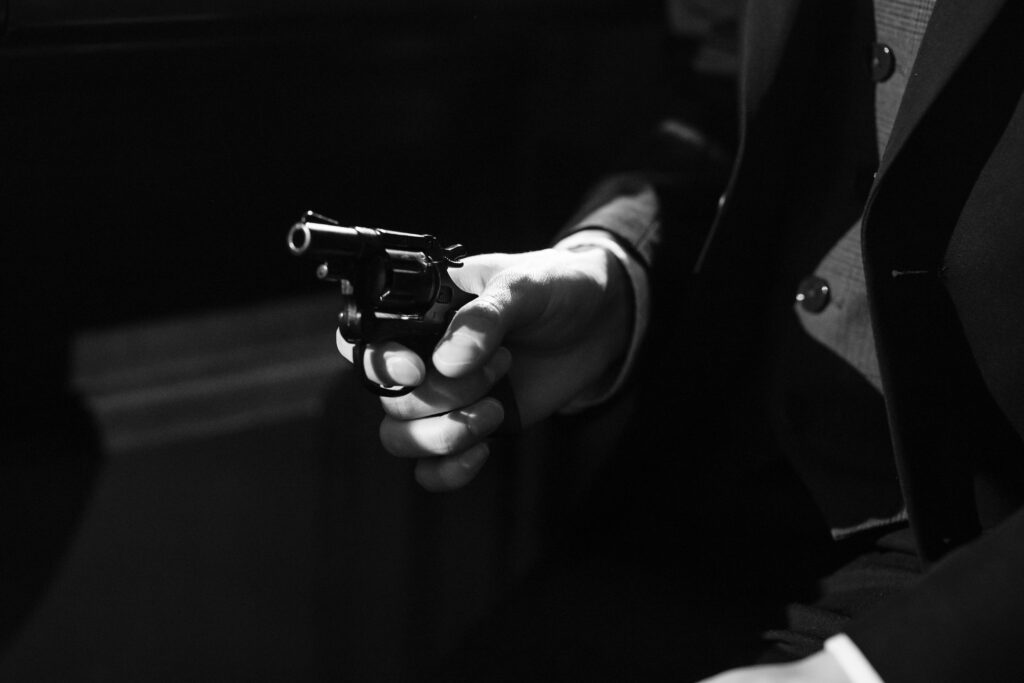The allure of the gangster genre has captivated audiences for decades, offering a glimpse into the clandestine world of organized crime. From the smoky backrooms of Prohibition-era speakeasies to the neon-lit streets of modern metropolises, gangster films have chronicled the rise and fall of notorious figures, blending action, drama, and moral complexity. In this exploration, we delve into the greatest gangster movies of all time, examining their impact and enduring legacy.
The Evolution of Gangster Cinema
Gangster films have evolved significantly since their inception, reflecting societal changes and cinematic advancements. The genre’s roots can be traced back to the early 20th century, with films like “The Public Enemy” (1931) setting the template for future narratives. Over the decades, directors have reimagined the genre, infusing it with new perspectives and storytelling techniques.
Classic Era: The Foundations
The 1930s and 1940s marked the golden age of gangster films. Titles such as “Scarface” (1932) and “The Public Enemy” (1931) introduced audiences to the archetypal mobster, characterized by ambition, ruthlessness, and a code of honor. These films laid the groundwork for the genre, establishing tropes that would be revisited and reinterpreted in subsequent decades.
New Hollywood: A Gritty Renaissance
The 1970s ushered in a renaissance for gangster cinema, with directors like Francis Ford Coppola and Martin Scorsese bringing a new level of depth and realism to the genre. “The Godfather” (1972) and its sequel, “The Godfather Part II” (1974), offered an intimate portrayal of the Corleone family’s criminal empire, exploring themes of power, loyalty, and betrayal. Scorsese’s “Mean Streets” (1973) and “Goodfellas” (1990) provided gritty, street-level views of organized crime, emphasizing character development and moral ambiguity.
Modern Interpretations: Global Perspectives
In recent years, the gangster genre has expanded beyond its American roots, embracing global narratives. Films like “City of God” (2002) from Brazil and “Gomorrah” (2008) from Italy offer unflinching looks at crime syndicates in their respective countries, highlighting the universal nature of organized crime and its societal impacts.
Defining Characteristics of Gangster Films
While diverse in setting and style, gangster movies share several defining characteristics:
- Complex Characters: Protagonists often straddle the line between hero and villain, making morally ambiguous decisions that challenge audience sympathies.
- Rise and Fall Narratives: Many films chronicle the ascent of a character within the criminal underworld, followed by their inevitable downfall, illustrating the transient nature of power.
- Exploration of Loyalty and Betrayal: Themes of trust, family, and betrayal are central, reflecting the precarious relationships within organized crime.
- Stylized Violence: While often graphic, the depiction of violence serves to underscore the brutal realities of the gangster lifestyle.
Iconic Gangster Films and Their Impact
Several films have left an indelible mark on the genre, influencing both filmmakers and audiences:
The Godfather Trilogy
Francis Ford Coppola’s epic saga, beginning with “The Godfather” (1972), is often hailed as the pinnacle of gangster cinema. The films delve into the complexities of family dynamics within the context of organized crime, offering a nuanced portrayal of power and its consequences.
Goodfellas
Martin Scorsese’s “Goodfellas” (1990) provides a fast-paced, energetic look at the life of a mob associate, based on real events. The film’s innovative narrative structure and dynamic cinematography have made it a benchmark in the genre.
Scarface
Brian De Palma’s “Scarface” (1983) reimagines the classic tale of ambition and excess, following Tony Montana’s rise from Cuban immigrant to Miami drug lord. The film’s stylized violence and quotable dialogue have cemented its status as a cultural touchstone.
Common Questions About Gangster Movies
Audiences often have questions about the gangster genre. Here are some frequently asked questions:
- What defines a gangster movie? A gangster movie typically focuses on the lives of criminals involved in organized crime, exploring themes of power, loyalty, and morality.
- Are gangster movies based on true stories? Many are inspired by real events or figures, though artistic liberties are often taken for dramatic effect.
- Why are gangster movies popular? They offer a glimpse into a forbidden world, exploring complex characters and moral dilemmas that resonate with audiences.
- Who are some notable directors of gangster films? Directors like Martin Scorsese, Francis Ford Coppola, and Brian De Palma are renowned for their contributions to the genre.
- What are some must-watch gangster movies? Classics include “The Godfather” series, “Goodfellas,” “Scarface,” and “The Departed.”
The Enduring Legacy of Gangster Cinema
Gangster films continue to captivate audiences, offering a lens through which to examine societal structures, moral complexities, and the human condition. Their enduring popularity speaks to the genre’s ability to evolve and resonate across different cultures and eras.
For those interested in exploring the genre further, resources like Time Out’s list of the 50 greatest gangster movies and AV Club’s ranking of the top 20 gangster films offer comprehensive guides to the genre’s most influential works.
As cinema continues to evolve, the gangster genre remains a vital and dynamic part of the film landscape, continually reinventing itself to reflect the complexities of the world it portrays.


